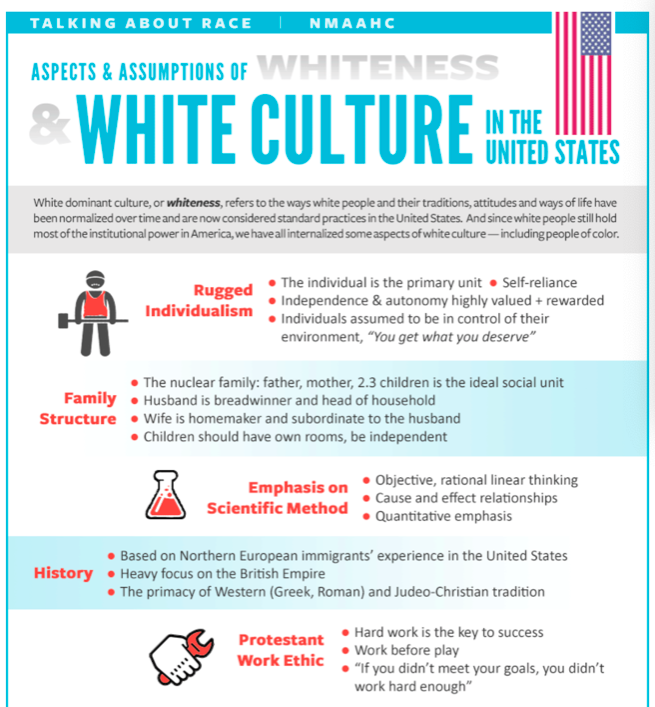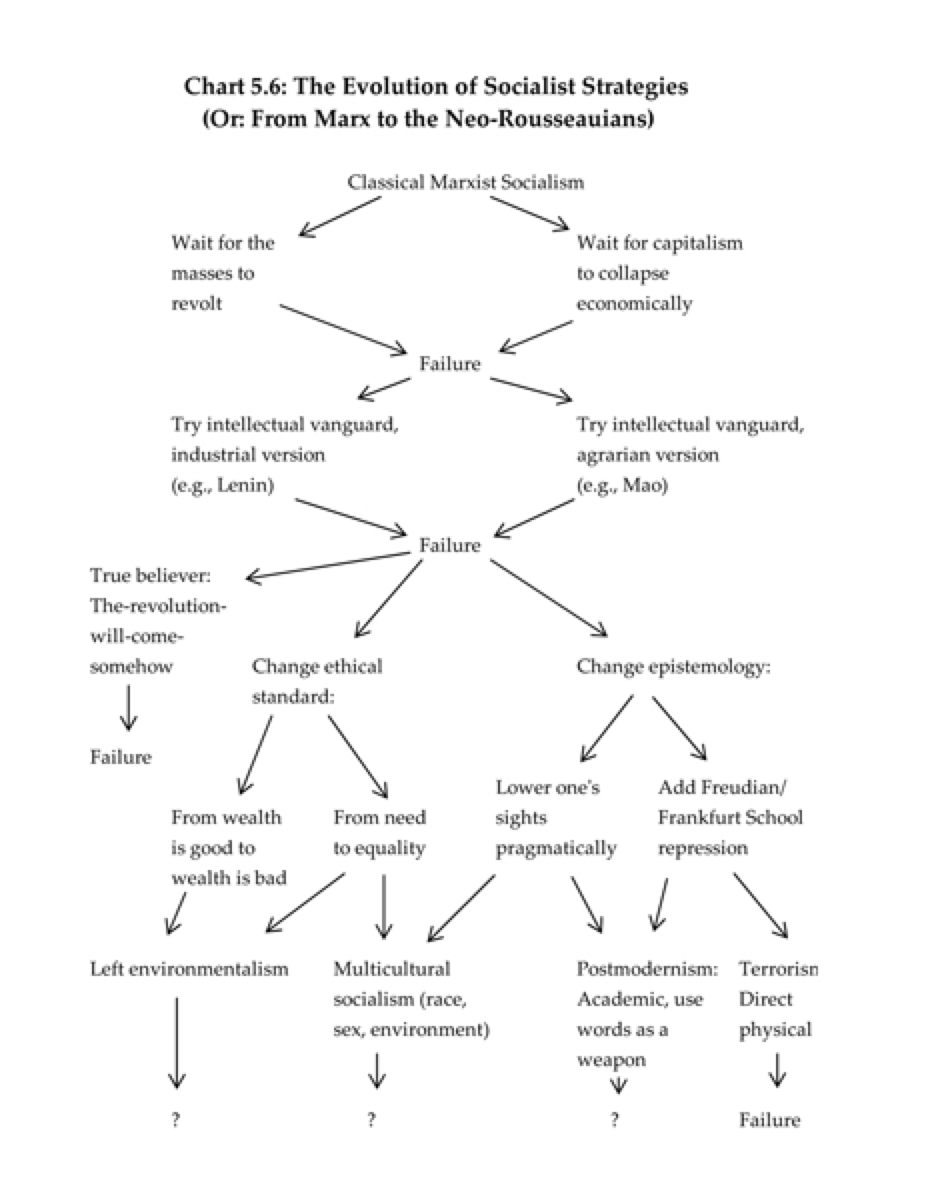A summary of Stephen Hicks& #39; book "Explaining Post-modernism"  https://abs.twimg.com/emoji/v2/... draggable="false" alt="👇" title="Rückhand Zeigefinger nach unten" aria-label="Emoji: Rückhand Zeigefinger nach unten"> https://www.amazon.com/dp/B005D53DG0/ref=dp-kindle-redirect?_encoding=UTF8&btkr=1">https://www.amazon.com/dp/B005D5...
https://abs.twimg.com/emoji/v2/... draggable="false" alt="👇" title="Rückhand Zeigefinger nach unten" aria-label="Emoji: Rückhand Zeigefinger nach unten"> https://www.amazon.com/dp/B005D53DG0/ref=dp-kindle-redirect?_encoding=UTF8&btkr=1">https://www.amazon.com/dp/B005D5...
Postmodernism often bills itself as anti-philosophical, by which it means that it rejects many traditional philosophical alternatives.
But despite its official distaste for some versions of the the universal...postmodernism offers a consistent framework of premises.
But despite its official distaste for some versions of the the universal...postmodernism offers a consistent framework of premises.
Postmodernism is anti-realist, holding that it is impossible to speak meaningfully about an independently existing reality.
Having done this, postmodernism denies that reason or any other method is means of acquiring objective knowledge of that reality.
Having done this, postmodernism denies that reason or any other method is means of acquiring objective knowledge of that reality.
Postmodern accounts of human nature are collectivist, holding that individuals’ identities are constructed largely by the social-linguistic groups that they are a part of.
These groups are consistently in conflict, and those conflicts are resolved by force (masked or naked)
These groups are consistently in conflict, and those conflicts are resolved by force (masked or naked)
Post modern cultural debates:
- Columbus modern hero or imperialist?
- is USA & the west broadly progressive on liberalism or an oppressor?
- Is technology net positive?
- is liberalism universal?
- Should people be treated as individuals or as groups? https://twitter.com/eriktorenberg/status/1274936363339575296?s=20">https://twitter.com/eriktoren...
- Columbus modern hero or imperialist?
- is USA & the west broadly progressive on liberalism or an oppressor?
- Is technology net positive?
- is liberalism universal?
- Should people be treated as individuals or as groups? https://twitter.com/eriktorenberg/status/1274936363339575296?s=20">https://twitter.com/eriktoren...
What makes these conflicts post-modern? That the terms have shifted.
“Truth” is a myth. “Reason” is a white male Eurocentric construct. “Equality” is a mask for oppressions. “Peace” and “Progress” are met w/ reminders of power.
Far left & far right are converging.
Smithsonian:
“Truth” is a myth. “Reason” is a white male Eurocentric construct. “Equality” is a mask for oppressions. “Peace” and “Progress” are met w/ reminders of power.
Far left & far right are converging.
Smithsonian:
How did post-modernism come about? Hicks traces the history by starting w/ Kant.
Kant asserted that people couldn& #39;t perceive reality outside of the mind. It was all subjective.
To speak of truth as an external relationship between mind and reality is nonsense, Kant claimed
Kant asserted that people couldn& #39;t perceive reality outside of the mind. It was all subjective.
To speak of truth as an external relationship between mind and reality is nonsense, Kant claimed
Of the five major features of Enlightenment reason—objectivity, competence, autonomy, universality, and being an individual faculty—Kant rejects objectivity.
Once reason is so severed from reality, the rest is
details—details that are worked out over the next two centuries.
Once reason is so severed from reality, the rest is
details—details that are worked out over the next two centuries.
After Kant it was Hegel.
While Kant’s focused on epistemology, Hegel’s focused on metaphysics.
- Reality is subjective and has contradictions
- Since reality evolves contradictorily, truth is relative to time & place
- The collective, not the individual, is the operative unit
While Kant’s focused on epistemology, Hegel’s focused on metaphysics.
- Reality is subjective and has contradictions
- Since reality evolves contradictorily, truth is relative to time & place
- The collective, not the individual, is the operative unit
The postmodernists abandoned Hegel& #39;s metaphysics * put Nietzschean power struggles at the core of our being.
And especially in the cases of Foucault & Derrida, most postmodernists abandoned Nietzsche ’s sense of the exalted potential of man & embraced Heidegger’s anti-humanism.
And especially in the cases of Foucault & Derrida, most postmodernists abandoned Nietzsche ’s sense of the exalted potential of man & embraced Heidegger’s anti-humanism.
Note this was a 180 for the far left:
Socialism accepted evidence, reason, logic, tolerance, and civility.
It was only when socialism performed so badly that those tools became enemies, because they were no longer useful to furthering socialism.
Socialism accepted evidence, reason, logic, tolerance, and civility.
It was only when socialism performed so badly that those tools became enemies, because they were no longer useful to furthering socialism.
Socialists argued that capitalism was driven by a logic of competitive exploitation that would cause its eventual collapse and that socialism’s communal form of production, by contrast, would prove to be economically superior.
They hoped for an eventual class war that never came
They hoped for an eventual class war that never came
Morally, capitalism was evil both because of the self-interested motives of those engaged in competition and b/c of the exploitation and alienation that competition caused.
Socialism, by contrast, would be based on selfless sacrifice and communal sharing.
...This didn& #39;t happen
Socialism, by contrast, would be based on selfless sacrifice and communal sharing.
...This didn& #39;t happen
So reason had nothing to offer the far-left.
What mattered now was will, authentic, and non-rational commitment.
Marxism failed. Class was not strong enough binder to foment a revolution. So the left rebranded to focusing on identity groups, which were more binding & permanent
What mattered now was will, authentic, and non-rational commitment.
Marxism failed. Class was not strong enough binder to foment a revolution. So the left rebranded to focusing on identity groups, which were more binding & permanent
If one is interested in truth , then one’s rational response to a failing theory is as follows:
- Break down theory into its premises, question them vigorously and check the logic that integrates them.
- Seek out alternatives
- Accept moral responsibility for consequences.
- Break down theory into its premises, question them vigorously and check the logic that integrates them.
- Seek out alternatives
- Accept moral responsibility for consequences.
But they& #39;d rather throw out truth altogether.
Echoing Dostoyevski, "If the truth was outside of Christ,
I would rather remain with Christ than with the truth.”
Both religion and socialism started with a comprehensive
vision that they believed to be true but not based on reason
Echoing Dostoyevski, "If the truth was outside of Christ,
I would rather remain with Christ than with the truth.”
Both religion and socialism started with a comprehensive
vision that they believed to be true but not based on reason
Post-modernists are the new sophists.
The Sophists taught rhetoric not as a means of advancing truth and knowledge but as a means of winning
debates in the rough-and-tumble world of day-to-day politics.
The Sophists taught rhetoric not as a means of advancing truth and knowledge but as a means of winning
debates in the rough-and-tumble world of day-to-day politics.
Coming after two millennia of Christianity and two centuries of socialist theory—post modernists believe that Subjectivism and relativism are true, except
that the postmodernists are on the side of the weaker and
historically-oppressed groups.
that the postmodernists are on the side of the weaker and
historically-oppressed groups.
Consider the following claims.
On the one hand, all truth is relative; on the other hand, postmodernism tells it like it really is.
On the one hand, all cultures are equally deserving of respect; on the other, Western culture is uniquely destructive and bad.
On the one hand, all truth is relative; on the other hand, postmodernism tells it like it really is.
On the one hand, all cultures are equally deserving of respect; on the other, Western culture is uniquely destructive and bad.
(Cont):
Technology is bad and destructive—and it is unfair that some people have more than others.
Tolerance is good and dominance is bad—but when postmodernists come to power, thought police follows.
Subjectivism and relativism in one breath, dogmatic absolutism in the next.
Technology is bad and destructive—and it is unfair that some people have more than others.
Tolerance is good and dominance is bad—but when postmodernists come to power, thought police follows.
Subjectivism and relativism in one breath, dogmatic absolutism in the next.
Postmodernists saying that all cultures are equal are like creationists who say all they want is equal time for evolutionism & creationism
They don& #39;t believe evolution deserves equal time as creationism, but as long as they& #39;re losing they& #39;ll argue for intellectual egalitarianism
They don& #39;t believe evolution deserves equal time as creationism, but as long as they& #39;re losing they& #39;ll argue for intellectual egalitarianism
They say they want equal respect for all
cultures, but what they really want in the long run is to suppress the liberal capitalist one.
Nietzsche& #39;s ressentiment: The weak become envious of the strong, but also start to hate themselves for it, so they rationalize their goodness.
cultures, but what they really want in the long run is to suppress the liberal capitalist one.
Nietzsche& #39;s ressentiment: The weak become envious of the strong, but also start to hate themselves for it, so they rationalize their goodness.

 Read on Twitter
Read on Twitter



